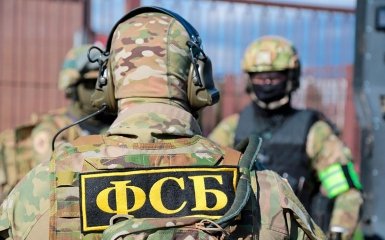Law enforcement officers exposed a criminal group that, on the order of a representative of Russia, was preparing a series of arson attacks in places of mass gathering of people, including in EU countries.
Points of attention
- The group, operating as part of a criminal group, used forged documents and was coordinated by staff members of the Russian special services.
- After arson, the performers were supposed to film the burning of objects for further use of the materials in special information operations.
- The extras face life imprisonment under articles of the Criminal Code of Ukraine on treason and forgery of documents.
- Investigative actions and operational measures are being continued with the aim of bringing all the guilty parties to justice in this complex criminal proceeding.
Law enforcement officers exposed a criminal group that was preparing mass arsons in shopping centers
As noted, the counter-intelligence of the Security Service and the National Police prevented a series of terrorist attacks in Ukraine and the European Union. As a result of a special operation in different regions of Ukraine, an agent group of the FSB was neutralized, which was preparing arson attacks in places of mass gathering of people.
As noted in the department, the main targets of the enemy were shopping centers, gas stations, pharmacies and markets in Ukraine, Poland and the Baltic countries.
During complex measures in Prykarpattia, the organizer of the enemy cell and his accomplice were detained. The perpetrators acted as part of a criminal group whose activities were remotely coordinated by staff members of the Russian special service, the SBU reports.
It is noted that the criminal group included 19 people, who were dispersed by their places of residence in Ivano-Frankivsk, Dnipropetrovsk, Poltava regions and Zaporizhzhia.
According to the investigation, those involved recruited candidates for arson of civilian objects for money. Personal connections in criminal circles were used to find potential executors.
In order to "dispatch" recruited arsonists abroad, those involved prepared forged documents for them. In particular, passports, driver's licenses, educational diplomas and medical cards issued for third parties.
In this way, the Russian intelligence agency planned to illegally transport its accomplices outside of Ukraine and "legalize" them on the territory of the EU, the report says.
After committing arson, the performers were supposed to film the burning of objects on the cameras of their own phones for further "reporting" to the FSB.
The aggressor planned to use the media files to prepare special information operations aimed at destabilizing the social and political situation in the European Union.
What is the punishment for those involved
During 37 searches of the residences, cars and garages of the suspects, the law enforcement officers seized:
mobile phones, flash drives, drafts and forged documents used in subversive activities;
AK machine gun, pistols, in particular Gloсk 19 with cartridges and silencers;
bank cards and large sums of cash that were spent on recruiting potential arsonists.
Currently, the organizer of the FSB agent group and his accomplice have been notified of suspicion under two articles of the Criminal Code, among them:
Part 2 of Article 111 (treason committed during martial law);
part 3 of Article 358 (forgery of documents, seals, stamps and forms, sale or use of forged documents, seals, stamps).
Investigative actions and operational measures are ongoing to bring all the culprits to justice. The perpetrators face life imprisonment.








